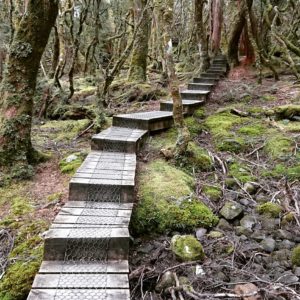Let’s go on an adventure…
I’m a clinician with more than 15 years experience as a speech pathologist working with people with lifelong disabilities. For many years I’ve thought about the prospect of doing research and gaining post-graduate qualifications through research… and now here I am!
Needless to say, there has been a bit of a steep learning curve over the last couple of months, but I’m determined to enjoy the process, the opportunities and (dare I say it) the journey. I feel like the metaphor of ‘the journey’ in relation to new adventures in life (and life itself) is over-used and has lost some of it’s meaning for me… so maybe I’ll stick with ‘adventure’. Adventures are scary, and fun, and unpredictable, and exciting, and challenging, and risky, and exhilarating (did I mention scary already?), so let’s just say I feel like I’m heading into a great big adventure.
I’ve chosen a topic that I feel quite passionate about and have already done some work on during my clinical career – accessible information. What is accessible information? It is information (visual, verbal, written, etc) that is accessible to it’s intended audiences. Making written information accessible might include translating it into another language, converting it to audio, making the language plainer or adding some pictures. Information that is accessible can be easily understood and easily used by its intended audience.
Being a health professional means that I’ve become very passionate about the way people access and understand health information that is given to them. Health literacy is a skill that allows people to access information and then use that information in an appropriate way. A health literate person will be able to read, understand and then follow the recommendations in a report from any health professional. There are lots of people who have low levels of health literacy, for a variety of reasons. Health literacy is linked to general literacy skills (reading, writing, comprehension etc) but low literacy is not the only barrier to good health literacy. For someone with low literacy skills we could translate our written information into a plain language audio file which will help the person access the information, but then they also need to understand all of that information and be able to act on it – this is a complex process with many barriers and facilitators of it’s own. People have a right to access information in a way that will help them to use it and act on it to make well informed health decisions for themselves.
Can you tell I’m passionate about this??
What I need to do now is take a step the first steps on my new adventure and learn about doing research (almost from scratch), make some good plans for my research, read and learn, and learn, and learn… watch this space!
